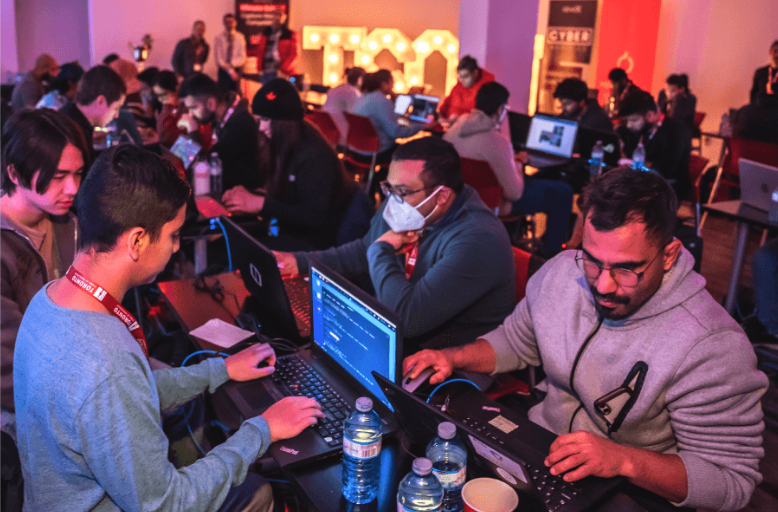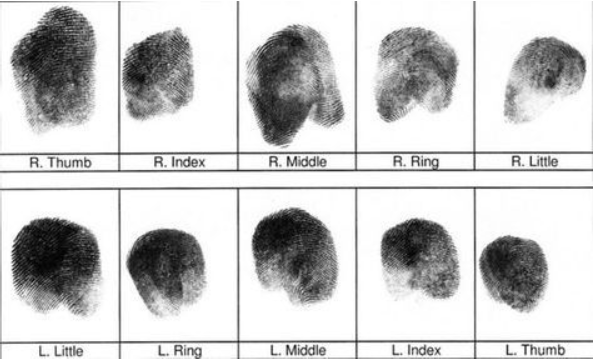What You Enjoy Can Help You Thrive in These Cybersecurity Jobs
Alright, let’s talk about something super important in your career journey: finding your niche. In a world that’s all about being real and finding purpose, it’s crucial to carve out a role in the cybersecurity universe that feels right for you.
In a field as broad as cybersecurity, having a niche gives you a unique identity. Are you the go-to person for spotting threats like a champ? Or maybe you’re the creative mind behind the next big security app? By embracing your niche, you build a brand that reflects who you are, not just what you do. It’s your personal stamp in the cybersecurity game. Now, here's the best part: what you enjoy doing in your free time can actually shape your career path in cybersecurity. Whether you love solving puzzles, diving deep into tech trends, or even creating content, those interests can align with specific roles in the field. The key is recognizing how your passions can fuel your professional growth and make your work not just a job, but something you truly love. Lets dive in…
If You Enjoy Participating in Capture-the-Flag Competitions...
Then You're Already on Your Way to Becoming a Penetration Tester.
In the role of a penetration tester, you'll utilize the skills you've sharpened in capture-the-flag (CTF) competitions to assess and enhance the security of real-world systems. Just as you dive into CTF challenges to uncover vulnerabilities and exploit them in a competitive environment, as a penetration tester, you'll engage in similar activities to identify weaknesses within an organization's defenses.
In this role, you’ll conduct simulated attacks, using your critical thinking and problem-solving skills to navigate complex networks and applications. You’ll be responsible for finding potential entry points and assessing how well security measures hold up against various threats. Each project will feel like a new challenge, allowing you to flex your technical prowess while providing valuable insights to improve overall security posture.
Your experience with CTFs will also enhance your ability to communicate findings effectively, as you'll need to compile detailed reports outlining vulnerabilities and recommending remediation strategies. By turning your passion for competitive cybersecurity into a profession, you’ll play a vital role in safeguarding organizations from malicious attacks.
If You Like Research and Learning New Things...
Then You’ll Do Well as a Cyber Threat Analyst.
As a cyber threat analyst, your passion for research and continuous learning will be at the forefront of your daily activities. You’ll dive deep into the world of cyber threats, analyzing the tactics, techniques, and procedures (TTPs) used by malicious actors. Just like a detective piecing together clues, you’ll examine incident reports, threat intelligence feeds, and security alerts to identify patterns and anticipate future attacks.
In this role, you’ll constantly stay updated on the latest vulnerabilities, malware, and threat landscapes, enabling you to provide actionable insights that enhance an organization’s security posture. Your research skills will allow you to produce detailed reports that inform decision-makers, ensuring they understand the risks and can implement appropriate security measures. By turning your love for research into a career, you'll play a crucial role in protecting organizations from evolving cyber threats.
If You Like Organizing and Managing Teams...
Then You’ll Do Well as a Security Operations Manager.
In the role of a security operations manager, your organizational and leadership skills will shine as you oversee security teams and operations. You’ll be responsible for ensuring that security measures are effectively implemented and that your team is working cohesively to detect and respond to threats. Much like a conductor leading an orchestra, you'll coordinate various security initiatives and ensure that every member of your team knows their role in maintaining a secure environment.
Your responsibilities will include developing and enforcing security policies, managing incident response efforts, and conducting regular security audits to identify vulnerabilities. You’ll also engage in cross-department collaboration, ensuring that everyone is aligned on security best practices. By leveraging your ability to manage and inspire teams, you’ll play a key role in fostering a proactive security culture within the organization.
If You Enjoy Teaching Your Grandparents How to Use Smartphones...
Then Consider Becoming a Cybersecurity Awareness Trainer.
If you’ve got the patience to explain, for the 10th time, why your grandparents’ phones aren’t ‘broken,’ then you're already ahead in the game! In the role of a cybersecurity awareness trainer, you'll have the rewarding opportunity to empower individuals and organizations with knowledge about online safety. Just like you guide your grandparents through smartphone features, you will create engaging training programs that educate employees on recognizing phishing attempts, safeguarding personal data, and adhering to cybersecurity policies.
Your role will involve developing instructional materials, hosting workshops, and conducting assessments to measure understanding. You'll leverage your ability to simplify complex concepts, ensuring that everyone—from tech novices to seasoned professionals—can grasp the importance of cybersecurity. By transforming tech newbies into security-savvy users, you'll enjoy that 'aha' moment when someone clicks with a concept. And the best part? You get to help people protect themselves online, one lightbulb moment at a time—without having to reset anyone’s Wi-Fi (probably).
If You're Always the First to Spot Waldo in "Where's Waldo?"...
Then You'll Excel as a Security Operations Center Analyst.
As a security operations center (SOC) analyst, your keen observation skills will be vital as you monitor networks and systems for signs of suspicious activity. Much like you spot Waldo in a crowded scene, you'll analyze logs and alerts to identify anomalies that could indicate a cyber threat.
In this role, you’ll work in a fast-paced environment where quick thinking and attention to detail are essential. You'll respond to incidents, investigate alerts, and collaborate with other cybersecurity professionals to mitigate potential risks. By utilizing your sharp eye and analytical skills, you'll help ensure that the organization's security posture remains strong, effectively defending against ever-evolving threats.
If You Love Solving Newspaper Crosswords and Brain Teasers...
Then Cryptography Might Be Your Perfect Field.
In the field of cryptography, your love for puzzles and problem-solving will shine as you work to protect sensitive information through encoding and decoding techniques. Just like you tackle crosswords and brain teasers, you’ll engage in complex mathematical and logical challenges to develop secure communication systems and encryption algorithms.
As a cryptographer, you’ll analyze and create cryptographic systems that safeguard data from unauthorized access. You’ll work with advanced algorithms and security protocols, constantly challenging your mind to stay ahead of potential threats. By applying your puzzle-solving skills to the world of cybersecurity, you’ll help ensure that information remains confidential and secure, playing a crucial role in safeguarding digital communications.
If You Enjoy Role-Playing Games and Assuming Different Characters...
Then You Might Thrive as a Social Engineering Tester.
In this role, your acting skills will come into play as you test an organization’s human security by impersonating various roles—think of it as a high-stakes game of pretend! You’ll engage employees in conversations to see if they’ll divulge sensitive information, uncovering vulnerabilities in how people interact with security protocols. It’s like being the ultimate character in a quest, where your mission is to ensure that everyone is equipped to recognize and resist real-world threats. Plus, you'll get to flex your creativity and psychological insight, making this role both challenging and rewarding!
If You Like Solving Puzzles and Enjoy Detective Work...
Then You Will Do Well as a Digital Forensics Analyst.
Digital forensics analysts are the detectives of the cyber world, and if you’ve got a knack for piecing together clues, this could be your calling! You’ll dive deep into cyber incidents, recovering data and sifting through digital evidence to solve cybercrimes. Every case is a unique puzzle, where you’ll analyze logs, examine compromised systems, and track down malicious actors. Your attention to detail will be your greatest ally as you uncover what happened during a breach and help organizations bolster their defenses for the future. Think of it as being part of a thrilling mystery, where every bit of information can lead to the breakthrough you need!
Finding your niche means you’re not just clocking in hours; you’re diving deep into something you love. If you’re a puzzle lover, jumping into Cryptography isn’t just work; it’s your personal Rubik’s Cube! Your enthusiasm will help you learn faster and develop expertise that can literally save lives in a digital world where data privacy is everything.
In a world where companies are waking up to the importance of ethics, aligning your niche with your values can lead to amazing opportunities. If you’re passionate about protecting marginalized communities from cyber threats, pursue that passion! Your dedication not only propels your career forward but also fosters positive change in the industry. Finding your niche in cybersecurity isn’t just about job titles; it’s about shaping a career that reflects who you are and what you believe in. So, whether you’re all about teaching, problem-solving, or advocating for ethical practices, remember that your passions can lead you to a fulfilling and impactful career. The future is bright, and your unique perspective is exactly what the cybersecurity world needs. So, go out there and find your place—you’ve got this!







